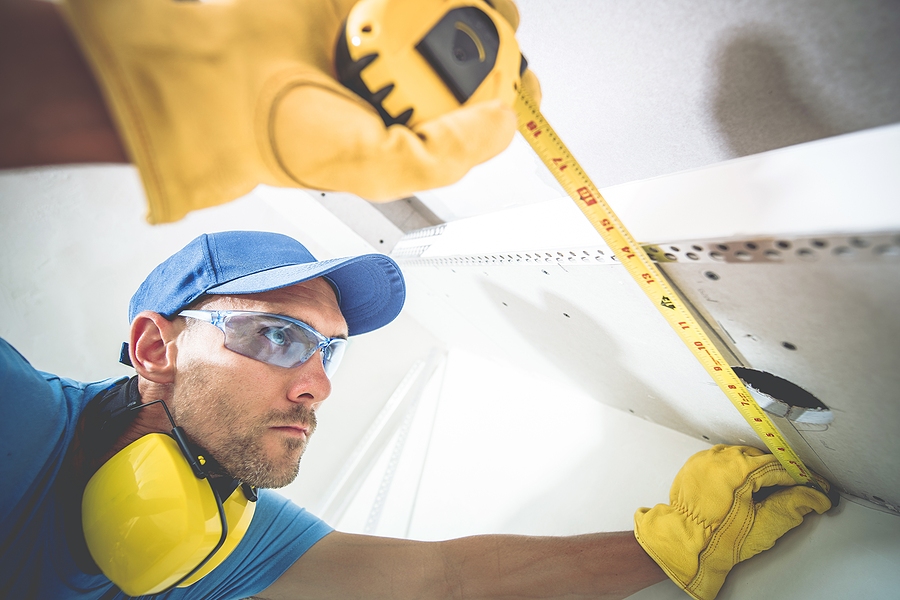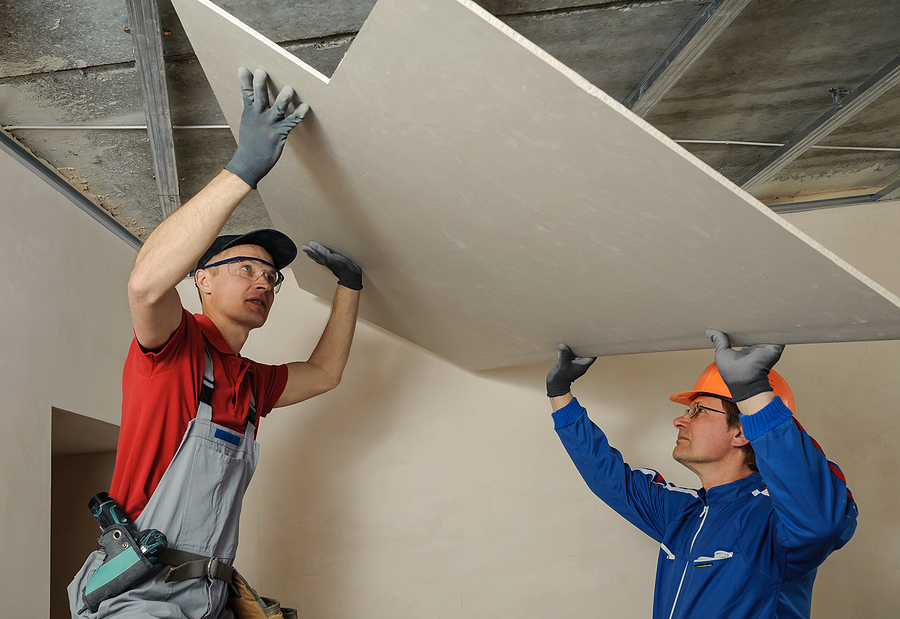Home renovation projects often present homeowners with a crucial decision: tackle the job yourself or hire professionals. When it comes to drywall installation and finishing, this choice becomes particularly significant. Drywall work forms the foundation of your room’s appearance and structural integrity, making the quality of installation essential for both aesthetics and long-term durability.
Understanding the true costs, time commitments, and potential risks associated with DIY drywalling versus hiring drywall contractors will help you make an informed decision that aligns with your budget, timeline, and quality expectations. While the allure of saving money through DIY projects is understandable, drywall work requires specific skills, tools, and experience that can significantly impact your project’s outcome.
This comprehensive comparison will examine every aspect of both approaches, helping you determine when DIY drywalling makes sense and when professional service becomes the smarter investment.

Drywall Work: DIY Versus Professional Service
DIY Drywalling: The Real Picture
Advantages of DIY Drywall Work
Taking on your own drywall project offers several appealing benefits. The most obvious advantage is potential cost savings on labor, as material costs typically range from $50 to $200 per room. You’ll also have complete control over your timeline, working at your own pace without coordinating contractor schedules.
DIY drywalling can provide personal satisfaction and skill development. Many homeowners find fulfillment in completing their own drywall installation, gaining valuable experience for future projects. You’ll also have the flexibility to make changes or adjustments as you work, without additional labor charges.
Challenges and Drawbacks of DIY
However, DIY drywalling comes with significant challenges that extend beyond the initial material costs. You’ll need to invest in specialized tools including drywall lifts, sanders, joint compound applicators, and safety equipment. These tool costs can quickly add up, potentially eliminating much of your anticipated savings.
The learning curve for proper drywall finishing is steep. Achieving smooth, professional-looking walls requires mastering techniques for taping seams, applying joint compound, and sanding to perfection. Common DIY mistakes include incorrectly taped seams leading to visible cracks and over-sanding drywall compound resulting in uneven surfaces.
Safety concerns also arise with DIY drywall work. Handling large, heavy sheets poses injury risks, while improper installation techniques can create structural issues or conditions conducive to mold growth.
Professional Drywalling: Expert Results
Benefits of Hiring Drywall Contractors
Professional drywall contractors bring expertise that translates into superior results. Their experience allows them to handle complex situations, achieve perfectly smooth finishes, and complete projects efficiently. Professional drywall installation typically costs $2 to $4 per square foot, give or take, inclusive of labor and materials, with detailed upfront quotes that minimize cost surprises.
Quality assurance represents a major advantage of professional service. Contractors carry insurance coverage and typically guarantee their work, protecting you from potential issues. Their specialized tools and techniques ensure proper installation that meets building codes and industry standards.
Professional contractors can also identify and address potential problems before they become costly issues. Their expertise extends beyond basic drywall work to include proper insulation, vapor barriers, and structural considerations that DIY projects might overlook.
Potential Drawbacks
The primary disadvantage of hiring professionals is the higher upfront cost compared to DIY material expenses. You’ll also need to coordinate scheduling with contractors, potentially affecting your project timeline. Some homeowners prefer maintaining complete control over their renovation process, which requires compromising when working with contractors.
Contact Us for a Free Drywall Quote ✅
Detailed Comparison: Making the Numbers Work
Cost Analysis
While DIY material costs appear attractive at $50 to $200 per room, this figure doesn’t include tool purchases, potential material waste, or costs associated with correcting mistakes. Hidden expenses often emerge when DIY projects require professional intervention to fix errors.
Professional drywall work provides transparent pricing at $2 to $4 per square foot, more or less. This comprehensive cost includes materials, labor, tools, and expertise. When factoring in time value and potential mistake costs, professional service often proves more economical than initially apparent.
Time Investment Comparison
DIY drywall projects frequently take weeks or months to complete, especially for inexperienced homeowners. This timeline includes research, preparation, actual installation, finishing work, and potential rework to correct mistakes. The time investment extends beyond active work hours to include learning proper techniques and troubleshooting problems.
Qualified contractors typically complete drywall work in just a few days. Their efficiency stems from experience, proper tools, and streamlined processes. This time savings allows you to focus on other priorities while ensuring timely project completion.
Quality Considerations
Professional drywall finishing consistently delivers superior results. Contractors achieve seamless finishes that enhance both appearance and property value. Their work creates the perfect foundation for paint, wallpaper, or other wall treatments.
DIY quality varies significantly based on skill level and experience. Even with careful attention, amateur work often shows visible imperfections that become more apparent over time. These quality issues can affect your home’s resale value and require future professional correction.
Risk Assessment
DIY drywalling carries multiple risk factors including improper installation leading to structural issues, safety hazards during installation, and potential for mold growth due to incorrect moisture barrier installation. These risks can result in expensive corrections and health concerns.
Professional installation minimizes these risks through expertise, proper techniques, and insurance coverage. Any issues that arise are typically covered by the contractor, ensuring satisfactory resolution without additional costs to you.
When to Choose DIY vs. Professional Service
DIY Makes Sense When:
Consider DIY drywalling for small repair projects, single accent walls, or situations where you have previous experience and proper tools. If you’re comfortable with the extended timeline and potential for imperfect results, DIY can work for non-critical areas like storage rooms or garages.
DIY also makes sense when budget constraints are severe and you’re willing to invest significant time in learning proper techniques. However, ensure you understand the full scope of required tools and materials before committing to the DIY approach.
Professional Service Is Best When:
Choose licensed drywall contractors for large-scale projects, rooms requiring perfect finishes like living areas or bedrooms, and situations where timing is critical. Professional service becomes essential for commercial spaces, areas requiring special moisture considerations like bathrooms, or projects involving structural modifications.
If your time is valuable or you lack experience with drywall work, professional installation provides better value despite higher upfront costs. The expertise and efficiency of professional contractors often justify the investment through superior results and time savings.
Wrapping Up
Choosing between DIY drywalling and professional contractors ultimately depends on your specific situation, skills, and priorities. While DIY projects offer potential savings and personal satisfaction, professional drywall work provides superior quality, efficiency, and peace of mind.
For most homeowners, the expertise, tools, and insurance coverage that professional drywall contractors provide make them the smarter choice. The initial investment in professional service often proves more economical when considering time savings, quality results, and risk mitigation.
Ready to ensure professional quality for your drywall project? Contact Us Today for a free estimate and discover how our experienced team can transform your space while avoiding the common pitfalls of DIY installation. Let us handle the technical challenges while you enjoy perfect, lasting results.
Related Post: Why Hiring Professional Drywall Contractors Are Worth Every Penny

